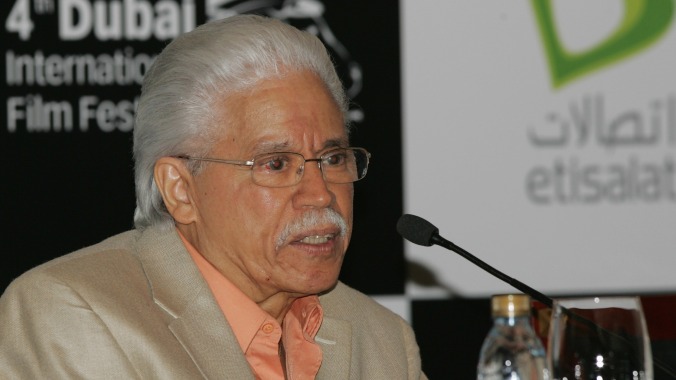R.I.P. Salsa pioneer and Fania Records co-founder Johnny Pacheco

Johnny Pacheco, Dominican bandleader and co-founder of the iconic salsa label Fania Records, died on February 15 at Holy Name Medical Center in Teaneck, New Jersey. According to Dominican newspaper Diario Libre, Pacheco had been hospitalized for complications from pneumonia. Fania Records confirmed his death on social media with a statement that read, “It is with profound sadness we share the news of the passing of Johnny Pacheco. He was one of Fania’s founders and the man most responsible for the genre of Salsa music. He was a visionary and his music will live on eternally.” He was 85.
Pacheco was born in the Dominican Republic and moved to New York City at 11 years old. His father, Rafael Azarias Pacheco, was the bandleader and clarinetist of the Santa Cecilia Orchestra. Pacheco inherited his passion for music: From a young age, he became a self-taught musician, learning to play the accordion, flute, violin, saxophone, and clarinet. He then attended the prestigious Julliard School of Music, studying percussion.
Pacheco was part of various Latin groups, including The Chuchulecos Boys, but his rise to fame came with the formation of his own charanga, Pacheco Y Su Charanga, in 1960. After his songs “El güiro de Macorina” and “Óyeme mulata” received attention on the radio, Alegre Records owner Al Santiago offered him a record deal. Their first record, Johnny Pacheco Y Su Charanga Vol. 1, quickly sold over 100,000 copies. With this charanga, Pacheco introduced a new dance craze called “Pachanga” (the name combines “Pacheco” with “charanga”). This turned him into one of the biggest Latin music stars, with Pacheco Y Su Charanga becoming the first Latin band to headline New York City’s Apollo Theater.
But the most monumental moment in his career was his creation of Fania Records with Jerry Masucci. The label launched the careers of some of the biggest Latin names in music, including Celia Cruz, Willie Colón, Rubén Blades, Héctor Lavoe, Cheo Feliciano, Ray Berretto, and countless others. In 1986, he also formed Fania All-Stars, a supergroup that showcased Fania’s talent all together, magnifying their roster’s star power further.
Pacheco is often credited with coining the term “salsa” for the genre, but in an interview in 2000 with Home News Tribune of East Brunswick, he clarified that he wasn’t sure if he invented the term, though he was one of the first to use it. “I don’t know if I was the first to call it salsa, but the reason I called it salsa is because we started to travel with all types of Latin [influenced] musicians, so I called it salsa to put it all under one roof,” he said. “We had the Puerto Ricans, Dominicans, Cubans, two Jews, and one Englishman. It was a nice salsa.”
While running Fania Records, Pacheco still remained a prolific musician in his own right. He released solo albums and composed over 150 songs for other artists, including salsa staples like “Quítate Tú (Pa’ Ponerme Yo),” “La Dicha Mía,” and “El Rey De La Punctualidad.” In 1974, he released a collaborative album with late Cuban salsa legend Celia Cruz, Celia & Johnny, on Fania’s sub-label, Vaya Records. That album catapulted Cruz into mainstream stardom, donning her the title of The Queen of Salsa, with iconic songs like “Quimbara” and “Toro Mata.”
Pacheco also performed with many of the biggest names in music, including Quincy Jones, Tony Bennett, Stevie Wonder, and others. He received multiple Grammy nominations, and was honored with the Lifetime Achievement Award at the 2005 Latin Grammys.